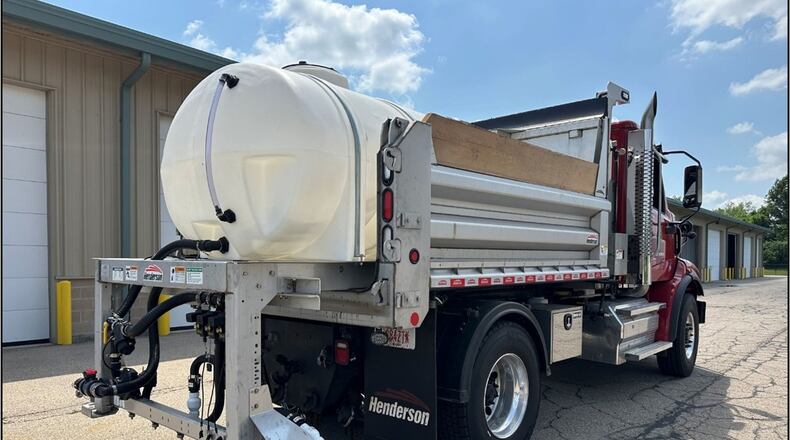Instead of relying solely on traditional rock salt, the new system uses a salt brine solution that is sprayed onto roads before and during winter storms. That approach keeps ice from sticking to the pavement, “reducing the need for granular salt and improving road safety,” according to the township.
“Key advantages to the new system are quicker prep time for staff and its ability to spray liquid across multiple lanes simultaneously, significantly increasing our efficiency during winter operations,” Miami Twp. Public Works Director John Schweickart said in a statement. “We can maintain a high level of service to the community while actively reducing chloride pollution in our waterways.”
The upgrade replaces Miami Twp.’s homemade liquid application system built in 2007, one the township said “lacked measuring precision, safety features and environmental safeguards of modern equipment.”
Road salt is a leading contributor to rising chloride levels in streams, wetlands and groundwater, according to the Cary Institute of Ecosystem Studies.
Those elevated salt levels can persist for decades, harming aquatic life, degrading drinking water quality and disrupting natural nutrient cycles, officials said.
About the Author

